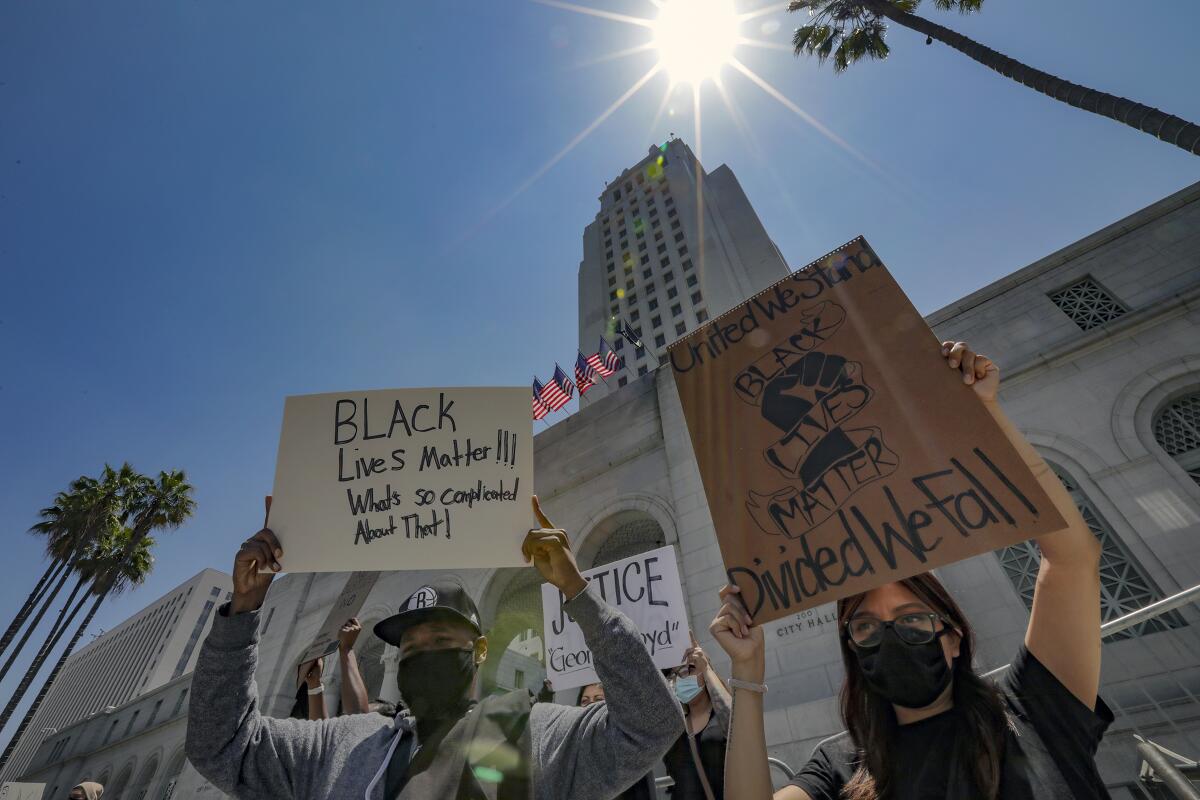COVID exposed Southern California’s inequities and injustices. Now it’s time to fix them

- Share via
COVID-19 has not been an equal opportunity pandemic.
The virus and its economic impacts have disproportionately hit low-income residents and communities of color, which has only worsened existing fault lines and inequities baked into Southern California institutions and communities.
The region cannot truly heal by simply returning to the pre-COVID status quo. That’s the argument put forth in “No Going Back: Policies for an Equitable & Inclusive Los Angeles,” a new report from USC’s Equity Research Institute, UCLA’s Luskin School of Public Affairs and the Committee for Greater LA, which is made up of political, philanthropic, business and labor leaders.
The report‘s authors make the case that 2020 should mark the turning point when Southern California begins to dismantle policies and institutions that have created inequities and rebuild a more just, inclusive society. And they offer dozens of ways to do so.
We agree. This is a moment when it should be impossible to ignore racial and economic injustice in our backyard, and when lasting change is within reach.
COVID-19 cases and death rates were disproportionately high among Black, Latino and Pacific Islanders — many of them “essential workers” on the pandemic’s front lines — in low-income neighborhoods in South L.A., East L.A. and cities along the Alameda corridor. At the same time, many of these same communities were getting hit especially hard by the economic fallout from the COVID closures. For example, nearly half of Black workers in the state have filed for unemployment benefits, compared to 27% of white workers.
The disparities spilled into education when students were sent home for distance learning, a shift that lower-income families were ill-equipped to support. The Times found that during the spring, large numbers of low-income students and Black and Latino students did not regularly participate in remote classes.
Then the death of George Floyd in Minneapolis police custody brought outrage to the streets, as marchers demanded an end to systemic anti-Black racism that fuels police brutality, profiling and an unequal criminal justice system.
Structural racism underpins so many of the disparities on display. That’s one reason why the report’s first principle for reinventing L.A. calls on the region’s leaders to address anti-Black racism. That includes decriminalizing homelessness and investing in healthcare and mental health services, alternatives to incarceration and home ownership assistance.
The report also calls for a more inclusive economy, one in which workers have safety nets and supports to earn a good living. That means ensuring paid sick leave, unemployment benefits, affordable childcare and reliable public transit. And every household should be able to get high-speed internet service, which has proven essential for workers, job seekers and students.
The pandemic and the protests made it obvious that there are two Los Angeles Counties — one for the “haves” and one for the “have nots.” The report lays out how the region’s economic, health, educational and criminal justice systems have been designed to maintain privilege of the “haves” while intentionally excluding and marginalizing the “have nots.” We ignore the divide at our peril.
More to Read
A cure for the common opinion
Get thought-provoking perspectives with our weekly newsletter.
You may occasionally receive promotional content from the Los Angeles Times.









